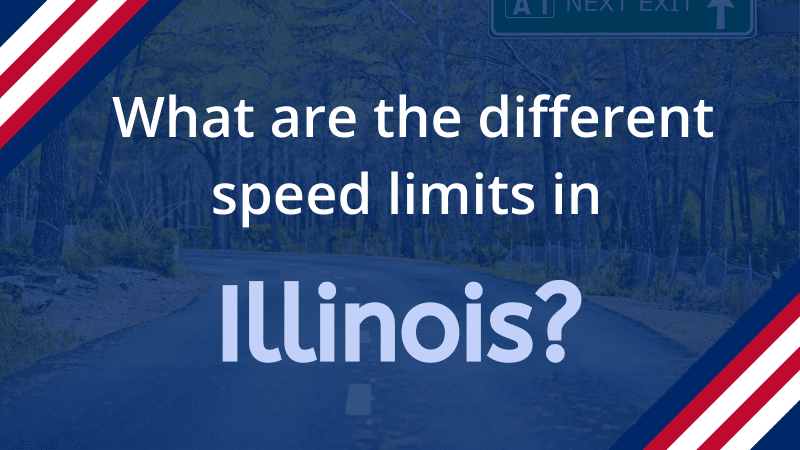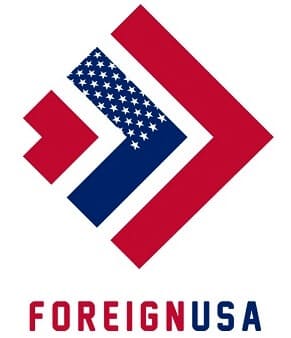Visiting Illinois for the first time? Maybe you are planning a move to the Prairie State or have just relocated?
There is a lot to look forward to, including rich national parks, natural attractions, shopping havens, exquisite pizzas, and a vibrant Windy City. Yes, there is much to take in on a trip to Illinois or if you have just moved there, but one of the things that you absolutely need to be aware of is the speed limits in Illinois and the various speeds you can travel on different roads in Illinois.
Knowledge of the different speed limits in Illinois is especially important if you plan to do some driving, whether in the cities, on the highways, or in any of the rural communities. That is because speeding in Illinois, similar to most places in the U.S., can attract hefty penalties and fines. You can be slapped with a speeding ticket, for example, as well as have your license suspended due to an accumulation of points.

Knowing the correct speed limits in Illinois is not only about avoiding punishment. It is also about driving safely on the roads to prevent accidents. Driving within the speed limit helps reduce the possibility of crashes and promotes efficient use of the road.
In Illinois, legislation is put in place to govern the safe use of the roads. Speed limits in work zones, for example, are established by the Illinois Department of Transportation.
The different speed limits in Illinois indicate the fastest speeds you are legally allowed to drive when the conditions are good – that is when driving in fair weather and with good visibility.
Of course, a specific Illinois speed limit does not necessarily mean you have to drive at that exact pace all the time. You still need to assess the road conditions and surrounding environment to determine the best speed at which to drive (that is also within the stipulated limit).
Different speed limits are implemented based on several factors, including population density and type of road. For each community and highway, the speed limits are often posted on prominent signs along the roadway.
What is the Maximum Illinois Speed Limit?
There are two different types of speed limits in Illinois, absolute, and basic. The Basic speed limit is not a definite number. Instead, it requires you to drive at a pace that observes environmental conditions and hazards, regardless of the stipulated speed limits. For example, if you are driving under poor light or wet conditions on a 65 mph roadway, you may be required to drive at a much slower speed to not be in breach of the basic speeding law.
There is no trick to how Illinois’s absolute speed limits work, if you are driving on a 70 mph road and you drive faster than that, you have violated the law and will therefore be fined and potentially face points being added to your license and subsequently, insurance.
The absolute speed limits in Illinois include:
- 15 mph in urban district alleys.
- 20 mph in school zones.
- 30 mph on urban district roadways.
- 55 mph on other highways, roadways, and streets outside urban districts.
- 65 mph on state highways with at least four lanes that are outside of urban districts.
- 70 mph on interstate highways.
With these different speed limits implemented in Illinois, it is important to pay attention to road signs. The last thing you want is to be slapped with a huge fine as a result of exceeding the Illinois speed limit.
Illinois Speeding Tickets and Points System
Each U.S. state has a different point system calculation for moving violations. In Illinois, regardless of the number of points, the suspension of your license is not enforced until a driver has been convicted of a specific number of moving violations within a certain period of time. Points in Illinois are used to determine the length of a suspension.
Here are the number of points you will receive for specific speeding violations
| Illinois Speeding Ticket Points | Total Points |
|---|---|
| Speeding 1-10 mph above limit | 5 points |
| Speeding 11-14 mph above limit | 15 points |
| Speeding 15-25 mph above limit | 20 points |
| Speeding 25+ mph above limit | 50 points |
| Speeding in a school zone | 20 points |
| Speeding in a construction zone | 20 points |
If a driver is 21 years of age or older and receives 3 citations that result in convictions within a 12-month period, the Illinois Secretary of State will add the points to determine the suspension length as shown below.
- 15 to 44 points: 2-month license suspension.
- 45 to 74 points: 3-month license suspension.
- 75 to 89 points: 6-month license suspension.
- 90 to 99 points: 9-month license suspension.
- 100 to 109 points: 12-month license suspension.
- 110+ points: License Revocation.
Speeding tickets in Illinois come with consequences depending on the circumstances of the offense.
Illinois speeding ticket fines:
- 1 to 20 miles per hour over the limit – $120.
- 21 to 25 miles per hour over the limit – $140.
- 26 to 34 miles per hour over the limit is a class B misdemeanor and carries up to six months in jail and a maximum fine of $1,500.
- 35 miles per hour or more over the limit is a class A misdemeanor and carries up to one year in jail and a maximum fine of $2,500.
- For speeding violations in school zones, the minimum fines are $150 for a first offense and $300 for a second or subsequent offense.
- Violations taking place in construction or maintenance zones carry minimum fines of $250 for a first offense and $750 for a second violation.
When visiting or relocating your family to Illinois, it is normal to have your mind focused on fun things to do. Knowledge of the Illinois speed limits – and adhering to them – will ensure your time is well spent and minimize the chance of you being fined or getting into an accident.


